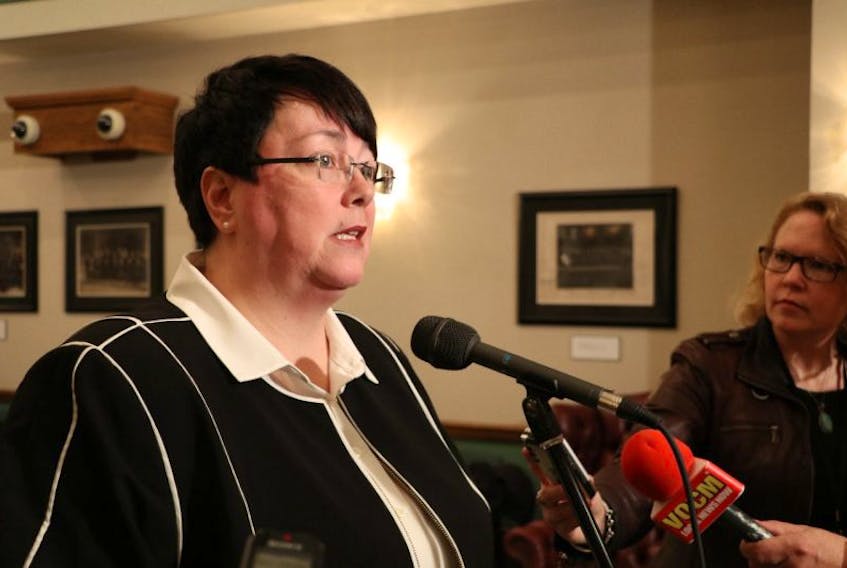Former Finance minister Cathy Bennett recently stepped down from the House of Assembly to return to private life.
Her announcement comes on the heels of a variety of harassment claims which led to the removal of both Dale Kirby and Eddie Joyce from caucus and cabinet. Both members are currently under investigation and on paid leave.
These incidents led to a discussion regarding bullying and harassment within the provincial government that included Bennett coming forward in a public interview to discuss her experience with bullying, not only on a public platform but also within the House chambers.
This complacency has fostered a toxic workplace that the average person would not accept in their own place of employment.
Bennett spoke about the inappropriate behaviour she experienced and witnessed by elected officials, including gaslighting and isolation. The former MHA didn’t pinpoint anyone, but stated it was a serious issue within her caucus.
Since announcing her retirement from politics, there has been some controversy around her actions, including a variety of statements about whether Bennett could handle the “blood bath” that is politics. However, shouldn’t the question really be why have we accepted politics to be such a hazardous and hostile environment? This complacency has fostered a toxic workplace that the average person would not accept in their own place of employment.
As the political environment was originally built on policies that reflected an all-male environment, there has been a shift in the discussions, calling for updated regulations to address the diversity displayed within the legislative house. This impending movement has to expand beyond the House to the public, who should demand a behaviour deemed appropriate from their representatives.
Bennett’s early retirement is reflective of an unfortunate trend within politics. Women are forced out of positions because of an environment that resists them performing their best, as well as representing their constituents to the full extent. A constant bombardment that includes isolation, exclusion and gaslighting prevents anyone from doing their best work. Rather, it becomes a constant focus that not only hinders one’s ability to produce effectively, but is also a disadvantage to their constituents.
Unfortunately, women in politics are more likely to step down from politics for numerous reasons, while recently a new and ongoing trend is politicians stepping down due to harassment claims against them. Nearly each provincial legislature, as well as the House of Commons, has faced a variety of questionable accusations. These ongoing harassment and bullying claims are evidence that the system is corrupt, yet, we are turning a blind eye and questioning victimized politicians who choose to step down, stating they “can’t hack it.”
But why does one have to tolerate such ongoing behaviour? How has that become the trending criticism, rather than the bullying?
There is a tendency to forget that public figures are human. We view them as somehow separate from the rest of society, a class of privileged officials who have no rights, but they exist to serve the public. Though, they represent their ridings, they shouldn’t have to trudge through thick, muddy waters to produce effectively. Who exactly benefits from this dynamic of harassing behaviour? Forcing women out of politics actually hinders the public. The United Nations states that 30 per cent of women are needed in representative platforms to best suit the needs of women and families. According to research observing the political system in America, women put through more bills, they invest more money in their district and they prioritize issues that are important to women, who are half the population. According to an Abasca survey, respondents found that women have leadership qualities that voters admire.
When it comes to women in politics and the atmosphere in general, there is criticism against those who want the system to change. The current toxic political environment is not appreciated by those within it, yet it is accepted and complacent to allow harassment and bullying, and critical of those who speak against it. It blames women for not being able to “tough it out” instead wondering why one should accept an unhealthy work environment.
Rather than questioning Bennett, it’s time we concern ourselves with the workplace she spoke against and the behaviours that have been tolerated for way too long.
Gina Hartmann
Atlantic regional co-ordinator
Equal Voice








